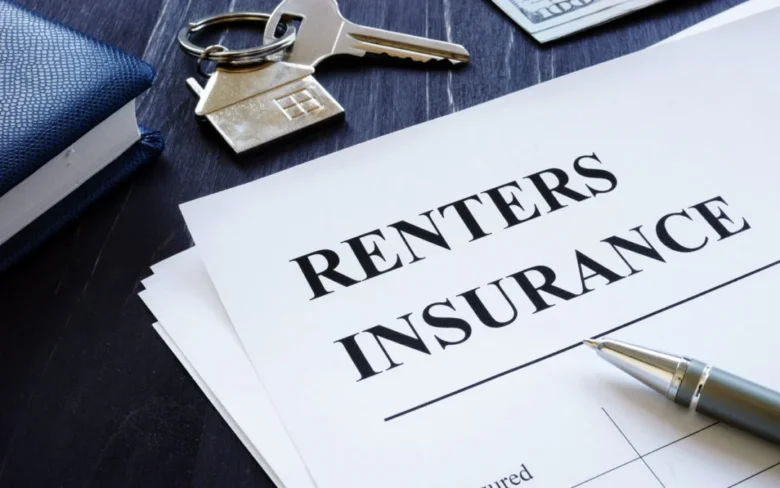Renting a home is convenient and gives you a lot of freedom, but it also entails some responsibilities and risks. Keeping your personal belongings safe is one of the most important parts of renting. This is where rental insurance for personal belongings comes in handy. We’ll discuss what personal property insurance is, why it’s important, and how to get the most out of it.
How to Understand Personal Property Coverage:
Personal property insurance is an important part of rental insurance because it provides financial protection if your belongings are damaged, stolen or lost. This coverage covers items such as furniture, electronics, clothing, and other personal belongings in your rental property. Personal property insurance can protect your belongings if something bad happens, no matter where you live (apartment, house, or rental).
Why You should Insure Your Personal Property:
Anti Theft
Imagine coming home to find that someone has broken into your apartment and taken your expensive jewelry and electronics. Otherwise, you’ll have to pay out of pocket to fix these things. Personal property coverage in a rental insurance policy reduces your financial burden by ensuring your lost or stolen items are covered.
Help Respond to Natural Disasters
Most rental insurance policies do not cover damage from natural disasters such as floods and earthquakes, but they do cover damage from fire, smoke, lightning and storms. Personal property insurance allows you to replace or repair your belongings, if they are damaged as a result of a covered event.
Accidental Damage
Accidents happen, and if you spill water on your laptop or damage a valuable piece of furniture, personal property insurance can help. If your belongings are accidentally damaged, this coverage will help you repair or replace them without having to dip into your savings.
Protect Yourself While Traveling
One of the lesser-known benefits of personal property insurance is that it often covers items other than the rental property. If your belongings are stolen or damaged while you are away, your rental insurance may still cover the loss of your belongings. Whether you’re on vacation or on a business trip, adding this extra layer of security can give you peace of mind.
What Does Personal Property Insurance Cover?
Electronics
Typically, personal property insurance covers things like laptops, smartphones, tablets, televisions and gaming systems. Since electronics are so expensive, having this type of security can be very helpful.
Household Products
All your furniture is insured to prevent damage or loss. This includes sofas, beds, dining tables, chairs, etc. This ensures that you can keep your living space if your furniture is damaged, without having to incur major costs.
Clothing
Personal property insurance covers a variety of clothing, from everyday clothing to special event clothing. This means you don’t have to worry about money if your clothes get damaged or stolen.
Technology Products
Items such as coffee machines, blenders and microwaves are also protected. This coverage is important for tenants who purchase their own appliances to make their rental space more comfortable and useful.
Valuables and Jewelry
Some valuables, such as jewelry and other valuables, may not be fully covered by personal property insurance. To ensure your most valuable items are fully protected, check your insurance carefully and consider purchasing additional coverage if necessary.
Collectibles and Works of Art
Personal property insurance can help you protect your valuable art, memorabilia, and other items you own. But as with jewelry, coverage can be limited, so you may need more coverage to be fully protected.
How to Maximize Your Personal Property Coverage:
Inventory Your Home
To get the most out of your personal property insurance, first make a detailed list of all your assets. Write down everything you own, when you bought it, what it was worth and what it’s worth now. Having this inventory can speed up the claims process and ensure you get the money you’re entitled to.
Know the Limits of Your Coverage
Coverage limits are the most an insurance company will pay to cover a loss. They are part of every rental insurance contract. Make sure the insurance amount matches the value of your belongings. If necessary, increase your level of cover to ensure you are fully protected.
Compare the Actual Cash Value to the Replacement Cost
Personal property coverage may be based on the cost of replacing the item or its current market value. Current cash value takes into account how much an item has lost in value over time, while replacement cost coverage pays for a new item of the same type and quality. Replacement cost insurance usually costs more, but protects you better.
Get Extra Eoverage for Something Worth A Lot of Money
If you have valuables, such as gold, art or collectibles, you may need to purchase additional coverage, known as an endorsement or rider. This ensures that these items are adequately covered, more than what insurance would normally cover.
Update Your Policy Regularly
When you get something new or the value of something you already own increases, you should update your strategy to reflect these changes. Ensuring your coverage is adequate means reviewing and updating your policy regularly.
Conclusion:
Personal property coverage in a rental insurance policy is an important safety measure for renters because it protects your belongings from theft, damage, or loss. By understanding what’s covered and how to get the most out of it, you can ensure your personal assets are well protected. Whether you experience a burglary, natural disaster or accident, personal property insurance protects your belongings and gives you peace of mind. Take the time to consider what coverage you need, keep a current inventory of your home, and choose the right coverage to protect your belongings.
FAQs:
1. What is renters insurance for personal property?
Rental insurance covers damage, theft and loss of your furniture, gadgets, clothing and other personal belongings. If your belongings are destroyed or stolen, this coverage will reimburse the cost of repairing or replacing them.
2. Are my personal belongings outside my rental property covered?
Personal property insurance typically covers items outside your rental property. Your rental insurance may cover your laptop if it is stolen while traveling. You must verify your OTC insurance policy.
3. Does personal property insurance cover jewelry and collectibles?
Personal property insurance protects jewelry and collectibles, but coverage is limited. To properly protect these products, you may need to obtain additional terms or approvals.
4. How do you choose personal property insurance limits?
Start with the home inventory to determine coverage. Please include the date of purchase, original cost and current value of all items. This checklist will help you determine the value of your property and ensure that you are adequately insured.
5. What is the difference between replacement cost and actual cash value of personal property insurance?
Without depreciation, replacement cost coverage pays for the cost of replacing a damaged or stolen item with a new item of comparable quality. However, when covering actual cash value, the current value of the item is paid, including depreciation. Replacement cost insurance provides better protection, but costs more.



